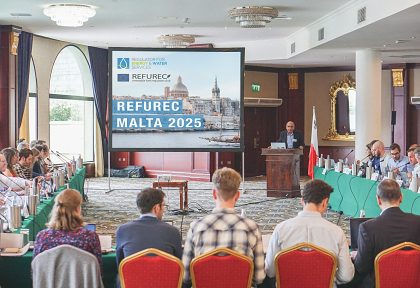
In one of the sessions, the Union Database (UDB) was discussed, with several Member States pointing out its shortcomings, as well as the need to link it to national databases and to unify the list of raw materials. The integration of Guarantees of Origin (GOs) for biomethane (biogas) was also addressed, with a consensus that the current system of cancellation of GOs is not sufficiently addressed. The next part dealt with voluntary schemes, in particular ISCC, where cases of fraud and calls for more control by certification bodies were raised.
Similarly, the implementation of RED III was discussed, where Member States are considering a choice between an emission target (GHG) and an energy target, with most expecting an increased risk of fraud in the choice of GHG target. Austria pointed out that the choice of target will affect the availability, price and preference for certain types of biofuels. Slovakia plans to implement RED III by January 2026, abolishing the national database SK BIO and basing the system exclusively on the UDB and voluntary schemes. The European Commission (EC) has reported that the UDB should be fully operational by the end of 2025, with complications expected in the integration of guarantees of origin and renewable gases. In RED III, the EC plans to revise Article 17, negotiate annual reports, and address issues related to the classification of biofuels, zero-emissions infrastructure, and low-carbon hydrogen, which is not yet defined.
The workshop provided a valuable exchange of experiences between countries in managing controls and meeting RED III targets, while allowing for mutual information and inspiration. Important for us was the observation that several countries face the same issues with UDB, although this time the communication with the UDB team and the EC was viewed more positively. However, it remains a concern that the UDB does not yet provide sufficient oversight and it is unclear who will control the data and transactions once the national databases are disconnected. The workshop also highlighted the growing risk of biofuel fraud and overall brought many suggestions from the renewable fuels sector within the EU.

